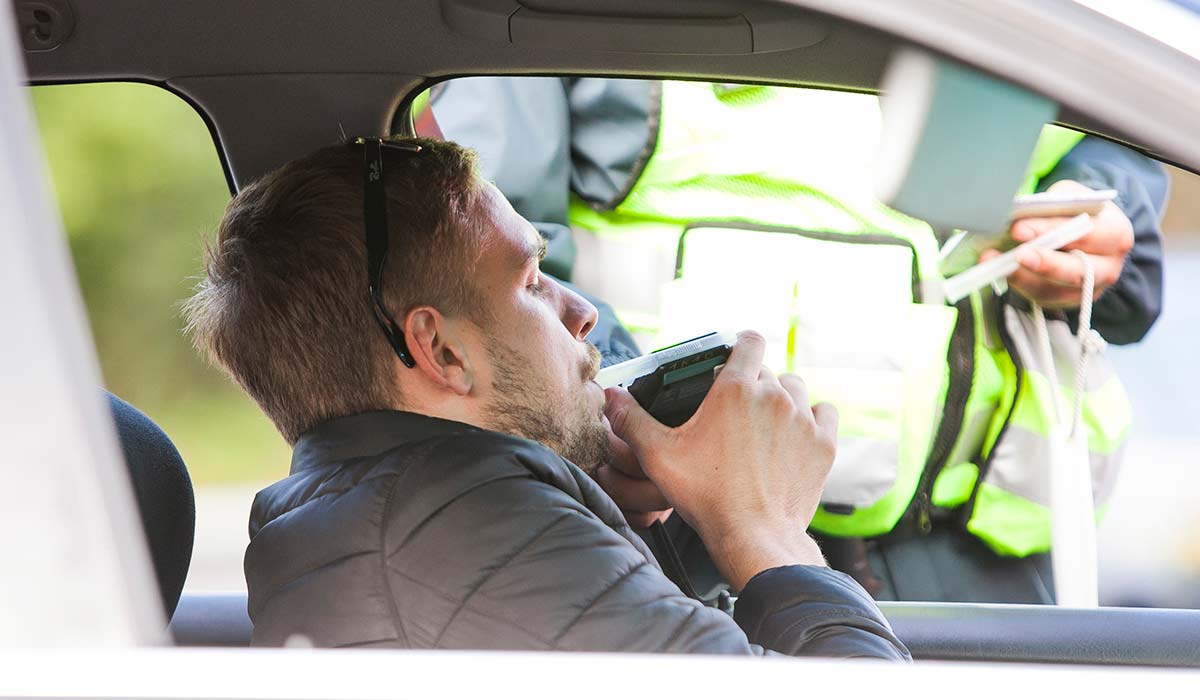Under the simplistic understanding of the law, any person who fails or refuses to provide a breath sample in response to the police officer’s demand without reasonable excuse is guilty of an offense…, or so it seems.
Types of Breath Tests
First of all, there are two types of breath tests that a motorist may be required to provide. First is a roadside test which occurs when the officer does not have grounds to arrest you for impaired driving but nonetheless believes that you have alcohol in your body. This test is provided into an approved screening device and if the result is “fail”, the officer will charge you with the offense of ’80 Over and take you into custody so that further breath samples can be supplied into an approved instrument which will determine the actual concentration of alcohol in your blood. This is the second type of breath test. If the officer arrests you for impaired driving, the first type of test will not be required and you will be taken to the police station or mobile unit for the second type of test.
If you do not provide breath samples either into an approved screening device or into an approved instrument, you will be charged with refusal to provide a breath sample. The refusal to provide a breath sample may be manifested in words (i.e. “I am not going to blow” or something like that) or inactions (i.e. by feigning the efforts to provide a proper sample).
Sanctions For Refusal
The sanctions for refusal to provide breath samples were recently made more severe than those for impaired driving or ’80 over specifically to discourage people from refusing to provide such samples.
Can You Defend Me? How?
That is where my job begins in defending you against this charge.
The breath tests must be administered in accordance with a specific legislative scheme and certain requirements have to be satisfied in order for the breath sample demand to be valid. Each fact scenario must be carefully scrutinized by an experienced impaired driving lawyer for possible violations of the requirements of the Criminal Code and/or the Charter.
For example, prior to demanding a breath sample into an approved screening device, an officer must have reasonable suspicion that you operated or had care or control of the motor vehicle and have alcohol in your body unless the officer has a roadside screening device readily available to him in which case, thanks to the new legislation, the officer can test you even without such a suspicion. However, if the officer does not have a roadside screening device with him, he should still form a reasonable suspicion before making you wait for a device to be delivered to the scene. If the officer does not have such suspicion and no device with him, the demand is invalid and your refusal should not result in a conviction.
Similarly, in case of the demand to provide breath samples into an approved instrument, the officer should first form reasonable and probable grounds to believe that you operated or had care or control of the vehicle while your ability to do so was impaired or while the concentration of alcohol in your blood exceeded the legal limit.
The question, of course, becomes what suspicion is reasonable and what constitutes sufficient reasonable and probable grounds. The answer depends on the particular facts of each case and the application of general principles developed in previously decided cases to those facts. It is the task of an experienced impaired driving lawyer to expose the lack of prerequisite grounds for issuing the breath demand.
The other issue of concern is the qualifications of the officer who operates the particular device or instrument. While the approved instrument must only be operated by a qualified breath technician, any officer can administer a roadside screening test which does not mean he or she knows how to do it. There are currently several different approved screening devices in use by the police and while their operation does not require great skill, officers often simply do not have sufficient knowledge which may result in charging a person who is innocent. I had several cases in which my clients were acquitted specifically because the officers did not know how to operate the approved screening device or misinterpreted the results. Of course, in order to mount this defense, your lawyer should be familiar with the operation of different devices and have a working knowledge of their respective manuals.
The timing of roadside breath tests is also extremely important. The approved screening device test must be administered promptly. The timing of such tests has been the subject of numerous court decisions and depends on the facts of your particular case. If this requirement is not satisfied, the resulting violations of your constitutional rights may lead to exclusion of evidence concerning your refusal to provide a breath sample which, in turn, will result in an acquittal.
Then there is an issue of reasonable excuse. What constitutes a reasonable excuse depends on the circumstances, examples include medical problems, anxiety, hysterical condition, language difficulties, etc.
In cases of multiple unsuccessful attempts to provide breath samples, the issue often arises where should the police draw the line, in other words, how many chances should the person get before being charged with refusal. The number of attempts given, the officer’s and the accused’s actions, the accused’s request for further attempts are just some of the factors relevant to this determination.
All of the above information barely scratched the surface of the issues involved in this offense and potential defenses available to a person charged with refusal to provide breath samples. Considering its technical complexity, the phrase “don’t try this at home” should be modified to “don’t try this in Court” unless you have an experienced impaired driving lawyer by your side.
